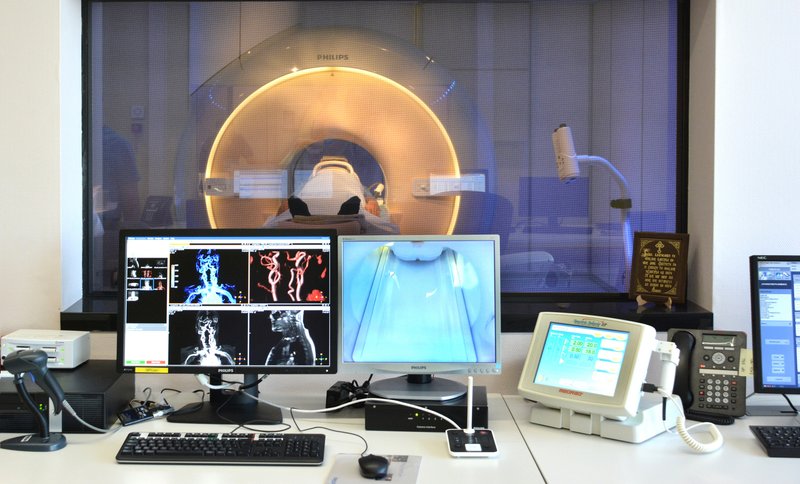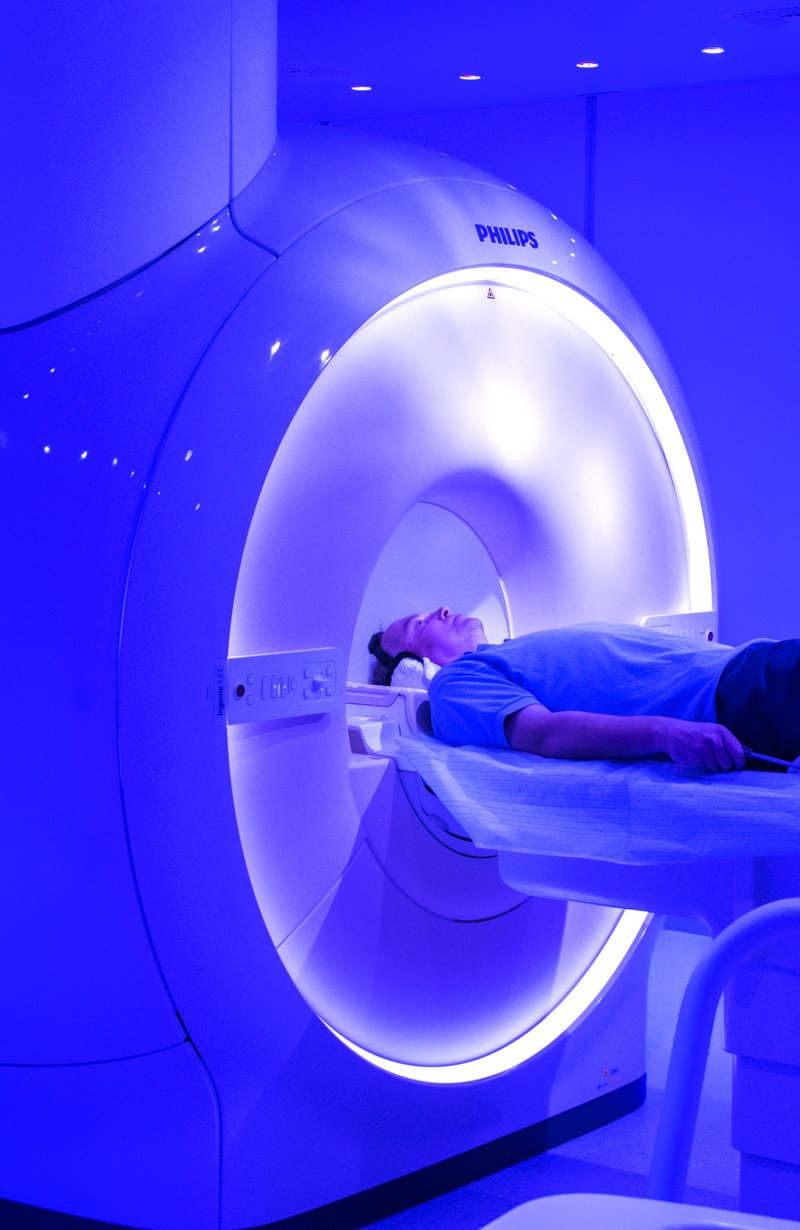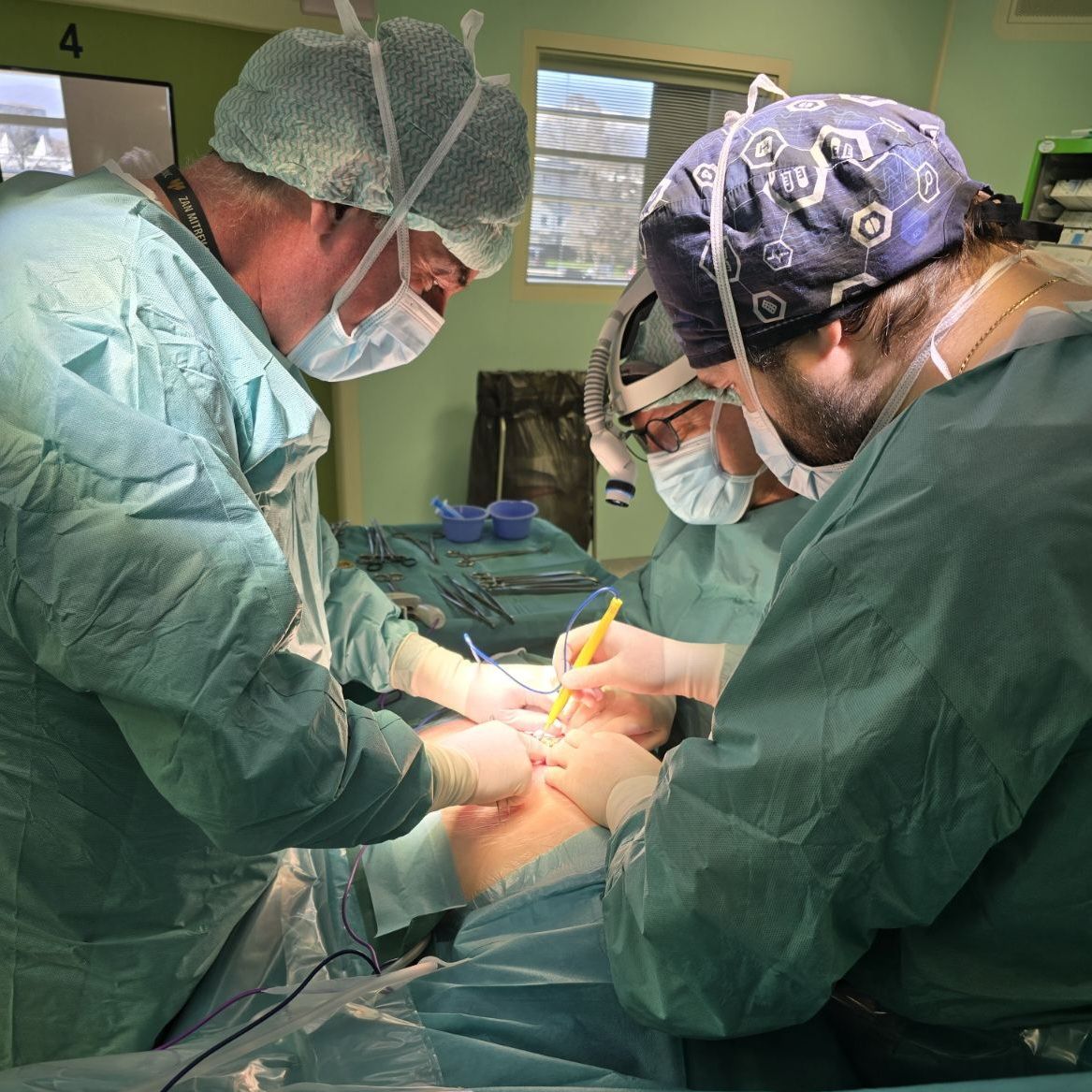 00389 2 3091 484
00389 2 3091 484
What is Cardiac Magnetic Resonance Imaging and how it is performed
October 3, 2019
Cardiac Magnetic Resonance Imaging (MRI) is a non-invasive diagnostic method that uses a magnetic field and radiofrequency to produce a detailed image of the heart, blood vessels and surrounding organs.
* Cardiac Magnetic Resonance Imaging is used for:
- Checking for tissue damage of myocardial infarction, what the damage is and whether it is permanent (myocardial viability)
- Accurate assessment of heart failure, potential causes of heart failure
- Evaluation and diagnostics of cardiomyopathies (dilated, hypertrophic, restrictive amylodosis)
- Diagnostics of myocarditis (inflammation of the heart muscle)
- Valve defects
- Evaluation of pericardium (lining around the heart)
- Assessment of congenital heart anomalies
Cardiac MRI is a safe and painless diagnostic procedure. People with any metal devices in and on the body must not undergo this procedure without confirmation that the device is MRI safe.
Such devices include:
- Cardiac pacemakers, implantable cardiac defibrillators (ICDs) and resynchronization therapy devices (CRTs)
- Inner ear implants
- Implanted infusion pumps, neuro-muscle stimulators, intrauterine contraceptive devices
- Brain aneurysm clips
- Some dental implants
- Any metal body parts
Prior to the examination, the patient should report on possible pregnancy, having tattoos, stents, valve prosthesis, heart surgery or kidney disease.
What happens during the examination?
- The examination usually takes 30-60 minutes
- The patient is lying on a comfortable moving table with headphones listening to the technologist’s instructions
- Patient cooperation is required with regard to breathing, exhaling and holding breath for a few seconds
- ECG and oxygen saturation are monitored all the time, and the patient is free to speak to the technologist during the examination
- If contrast application is needed, intravenous cannula in the arm is planned prior to examination.
After the examination, immediate return to normal activities is possible. There is no limit as there is no ionizing radiation. The examination results are usually obtained within 2-3 business days.








